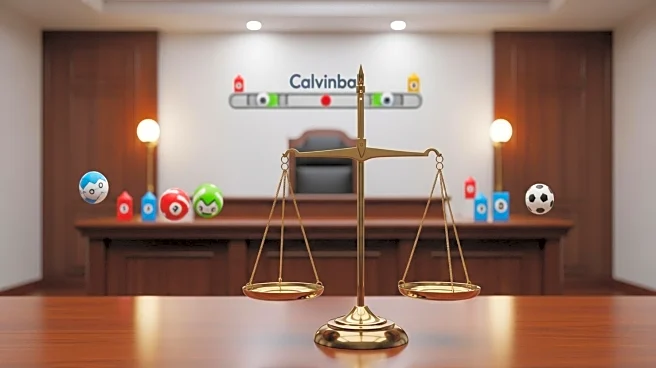What's Happening?
Justice Ketanji Brown Jackson has criticized the Supreme Court's conservative majority, likening their approach to 'Calvinball jurisprudence.' This analogy refers to the fictional sport from the comic strip Calvin & Hobbes, where rules are made up as the game progresses. Jackson's critique came in a dissenting opinion on a shadow docket decision that allowed the administration to act without statutory or judicial oversight. Her comments were directed at the court's handling of cases like Stanley v. City of Sanford, where she disagreed with the majority's interpretation of the Americans with Disabilities Act. Jackson argued that the law should protect individuals even after retirement, contrary to the majority's view. Her dissent has sparked a response from conservative figures, including Neil Gorsuch and Amy Coney Barrett, who have criticized her approach as disregarding textualism and judicial restraint.
Why It's Important?
The debate highlights ongoing tensions within the Supreme Court regarding judicial philosophy and interpretation of laws. Jackson's critique underscores a broader discussion about the role of the judiciary in checking executive power and protecting individual rights. Her dissent suggests a push for a more expansive interpretation of laws like the ADA, which could impact future rulings on employment discrimination and retirement benefits. The conservative majority's response reflects a commitment to textualism, which may limit the scope of judicial intervention. This ideological clash could influence public perception of the court's impartiality and its role in shaping U.S. law and policy.
What's Next?
The ongoing debate may lead to further scrutiny of the Supreme Court's decisions and their alignment with public expectations of justice and fairness. As Jackson continues to voice her dissent, it could prompt discussions on judicial ethics and the balance between textualism and broader interpretations of legislative intent. Stakeholders, including legal scholars and civil rights advocates, may push for reforms or clarifications in judicial conduct and decision-making processes. The court's future rulings will likely be closely watched for indications of shifts in judicial philosophy.
Beyond the Headlines
Jackson's dissent raises questions about the ethical dimensions of judicial decision-making and the potential for bias in interpreting laws. Her critique of 'Calvinball jurisprudence' suggests concerns about the consistency and transparency of the court's rulings. This could lead to calls for greater accountability and reforms to ensure that judicial decisions reflect a fair and balanced interpretation of laws. The cultural impact of her analogy may resonate with those advocating for a more progressive judiciary.










